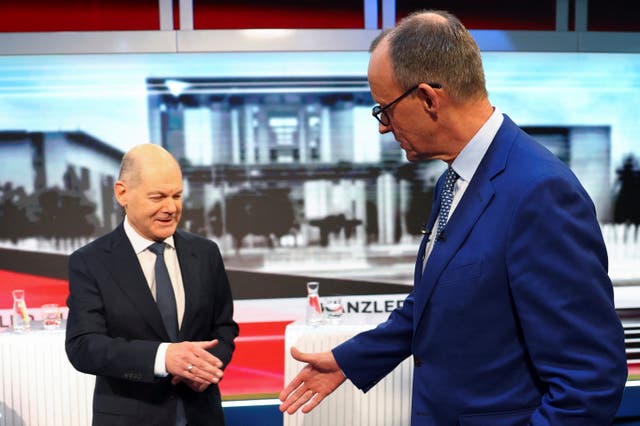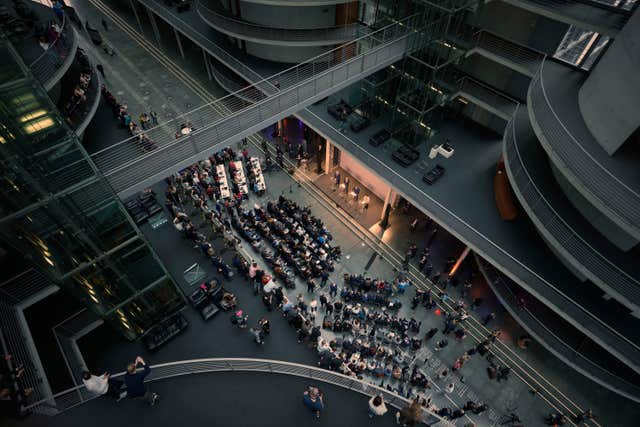German parliament votes on whether to approve Friedrich Mertz as chancellor
Mr Merz seeks to take the helm of the European Union’ s most populous member after outgoing Chancellor Olaf Scholz’s government collapsed last year.

German legislators are set to vote on whether conservative leader Friedrich Merz will become the country’s tenth chancellor since the Second World War.
Mr Merz seeks to take the helm of the 27-nation European Union’ s most populous member after outgoing Chancellor Olaf Scholz’s government collapsed last year.
The country has the continent’s biggest economy and serves as a diplomatic heavyweight.

Mr Merz’s portfolio would include the war in Ukraine and the Trump administration’s trade policy on top of domestic issues such as the stagnant economy and the rise of a far-right, anti-immigrant party.
If Mr Merz fails to win a majority, the lower house of parliament — called the Bundestag — has 14 days to elect a candidate with an absolute majority.
If that also fails, the constitution allows for the president to appoint the candidate who wins the most votes as chancellor, or to dissolve the Bundestag and hold a new national election.
– 80th anniversary of the Second World War
Mr Merz needs to win over at least 316 of 630 legislators in the Bundestag.
The vote comes on the eve of the 80th anniversary of Germany’s unconditional surrender.
The secret ballots will be cast in the restored Reichstag, where graffiti left by Soviet troops has been preserved at several places in the building.
If he is elected, Mr Merz will face questions about the future of the far-right, anti-immigrant Alternative for Germany party, also known as AfD.

Mainstream German political parties refuse to work with it, citing the so-called “firewall” they have upheld against co-operating with far-right parties since the end of the war.
– AfD’s rise
Last week, the German domestic intelligence service said it has classified AfD — which placed second in national elections in February — as a “right-wing extremist” organisation, making it subject to greater and broader surveillance.
Germany’s Federal Office for the Protection of the Constitution described the party as a threat to the country’s democratic order, saying it “disregards human dignity” — in particular by what it called “ongoing agitation” against refugees and migrants.
The federal office’s decision prompted blowback from US secretary of state Marco Rubio and US vice president JD Vance over the weekend.
Germany’s Foreign Ministry hit back at Mr Rubio after he called on the country to undo the classification.
The domestic intelligence service’s measure does not amount to a ban of the party, which can only take place through a request by either of parliament’s two chambers or the federal government through the Federal Constitutional Court.
Mr Merz has not commented publicly on the intelligence service’s decision.
– The new coalition
The new coalition is led by Mr Merz’s centre-right Christian Democratic Union and its Bavarian sister party, the Christian Social Union, and joined by the centre-left Social Democrats, Mr Scholz’s party.
All three parties previously approved the coalition deal.
The coalition has a relatively modest majority, with 328 of the Bundestag’s 630 seats, and aims to spur economic growth, ramp up defence spending, take a tougher approach to migration and catch up on long-neglected modernisation.
The Union and Social Democrats have governed Germany together before, in the 1960s, and then in three of the four terms of former Chancellor Angela Merkel, who led the country from 2005 to 2021.
Mr Merz’s party last month announced its proposed government team, including senior legislator Johann Wadephul as foreign minister — a position the CDU last held in the 1960s.





